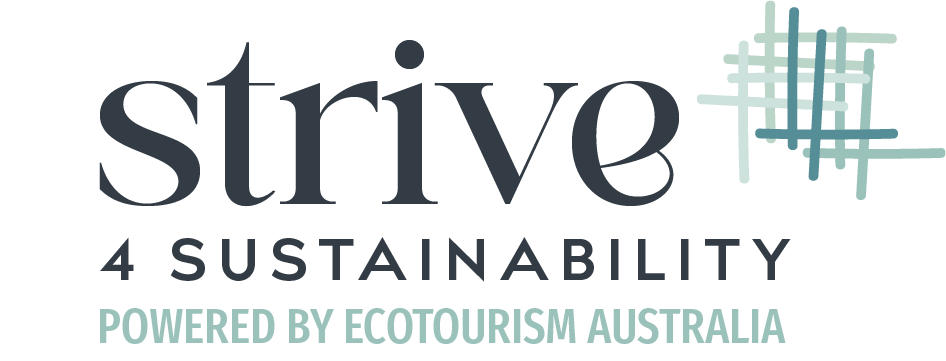
Camping Accommodation

Yuin-Monaro Country / Kalaru, NEW SOUTH WALES
From a 1960s cattle property to a modern eco-retreat, Kangarutha Farm values lasting sustainability.
Just minutes from the iconic beach town of Tathra and bordering the coastal Bournda National Park, Kangarutha Farm offers secluded camping and a unique nature-based venue surrounded by native forest, open paddocks and scenic dams. With a handful of tranquil campsites ideal for campfires and quiet connection to nature, Kangarutha is a place to unplug, recharge and immerse yourself in the environment.
Kangarutha Farm was recently among the many businesses that used funding from Destination NSW to complete Ecotourism Australia’s Strive 4 Sustainability Scorecard. In collaboration with Ecotourism Australia and Tourism Australia, Destination NSW provided eligible visitor economy businesses across the state with free access to this pre-certification tool. This initiative demonstrated a strong commitment to empowering operators to improve their sustainability practices, and importantly, to create the breathing space needed for small businesses to make sustainability a genuine operational priority.
For co-founders Lisa and Tom Hamilton, the grant support made the decision to undertake the Scorecard much easier.
“In a small business, every cost counts,” Lisa explained. “Especially when there’s uncertainty about whether we would ‘pass’ or not. Having the Destination NSW grant really helped with the decision-making.”
Lisa shared that their motivation to complete the Scorecard stemmed from years of inspiration.
“We have been interested in pursuing eco-tourism certifications for a while now, as we were inspired by other local eco-tourism businesses such as Navigate Expeditions and Tanja Lagoon Camp. We were finally spurred into action to undertake the Strive 4 Sustainability Scorecard because of our participation with the landmark Bega Circular Valley initiative, which is focused on transitioning the Bega Valley to a more circular economy.”
Kangarutha Farm has been in Tom Hamilton’s family since the 1960s, with generations acting as custodians to protect its forested areas from development, preserve the property’s natural beauty, and establish a lasting legacy of environmental stewardship that reflects their deep connection to the land. In 2017, Tom and his partner Lisa returned to the farm to pursue their dream of creating an eco-tourism venture that honoured this legacy. Completing the Strive 4 Sustainability Scorecard provided them with more than just a benchmark – it offered a meaningful opportunity to reflect on their sustainability practices and chart a thoughtful path for the farm’s future.
“Participation within the program allowed us to pause for a bit and really think about our business broadly – thinking about our environmental, social and cultural, and governance measures and impacts. It highlighted (even just to us) all the good things that we are doing that easily get lost in the chaos! Finally, it increased our focus on sustainability, and this will likely be reflected in our continual improvements to our business as we move forward. ”
Completing the Scorecard also gave Kangarutha Farm a clearer pathway toward the future.
“After going through the scorecard process, we have a much better sense of what is required for full certification, and so we feel that once we tick off a few sustainability objectives within the business, we can progress further with the certification!”
For Kangarutha Farm, completing the Strive 4 Sustainability Scorecard wasn’t simply a compliance exercise – it was a chance to reaffirm their values, honour a multi-generational legacy of land stewardship and lay the foundations for their next chapter in sustainable tourism.
Click here to learn more about Kangarutha Farm’s sustainable efforts, and book your stay: https://kangarutha.com.au/sustainability/
Kangarutha Farm completed their Strive 4 Sustainability Scorecard on 5 Aug 2025 and is a snapshot of their current sustainability practices. The scorecard is not a certification and is valid for 12 months upon completion.

